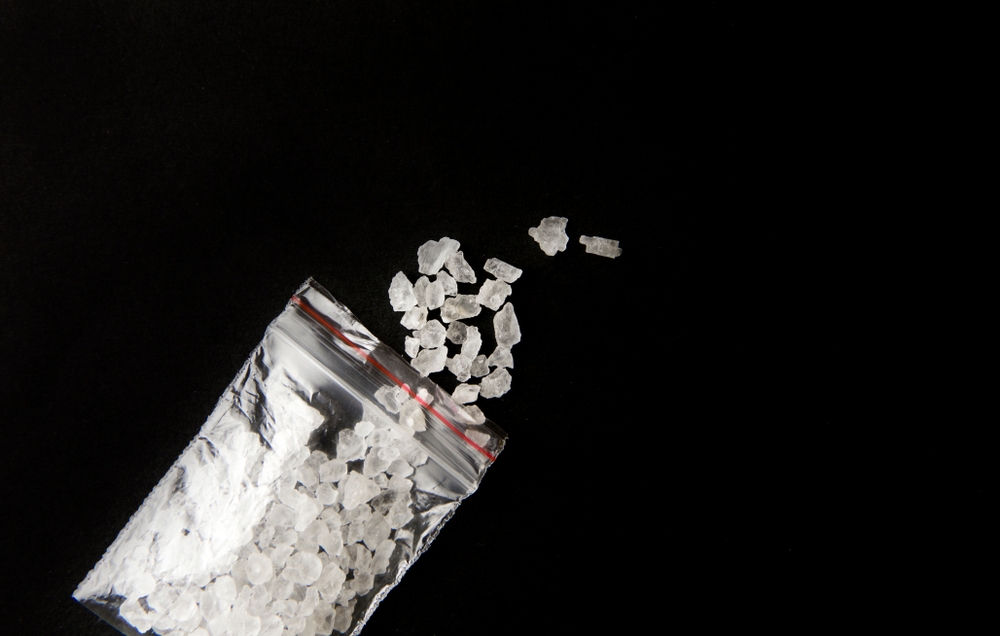
Over the past decade, synthetic drugs like “bath salts” and “K2” have become a growing concern in New Jersey. Marketed as harmless products, these man-made drugs can be incredibly dangerous. Their unpredictable effects and accessibility have led to increased arrests and tough prosecution.
If you’ve been charged with possessing or selling synthetic drugs in New Jersey, understanding how prosecutors handle these cases is critical. The laws surrounding synthetic drug charges are complex, and penalties can be severe, especially if prosecutors believe you were manufacturing, distributing, or selling the substance.
At Camili & Capo, our New Jersey criminal defense attorneys help clients navigate these difficult cases and build strong legal strategies to protect their rights and futures.
What Are Synthetic Drugs?
Synthetic drugs are man-made chemical substances designed to imitate the effects of illegal drugs such as cocaine, marijuana, or methamphetamine. Common examples include:
- Bath salts (synthetic cathinones) – mimic stimulants like cocaine or MDMA.
- K2 or Spice (synthetic cannabinoids) – mimic THC, the active ingredient in marijuana.
- Synthetic opioids – often far stronger than heroin or fentanyl.
These substances are often labeled as “incense,” “plant food,” or “not for human consumption,” which can mislead consumers. But their chemical composition can change from batch to batch, leading to unpredictable and sometimes violent effects. That’s one reason law enforcement and prosecutors in New Jersey treat synthetic drug cases so seriously.
How New Jersey Classifies Synthetic Drugs
Under New Jersey’s Controlled Dangerous Substances (CDS) laws, synthetic drugs are classified based on their chemical structure and their effects on the body. Even if a particular compound isn’t listed by name, prosecutors can still pursue charges under the New Jersey Controlled Dangerous Substances Act.
That law allows prosecutors to treat a synthetic drug the same way as its illegal counterpart if it has a similar chemical makeup and produces similar effects. For instance, a compound designed to mimic cocaine could lead to the same level of criminal charges as cocaine possession or distribution.
How Prosecutors Approach Synthetic Drug Cases
Prosecutors in New Jersey often approach synthetic drug charges with the same intensity as other major drug crimes. However, because these drugs are constantly changing, proving the case can be complex.
To secure a conviction, prosecutors generally must show:
- The substance is chemically similar to a controlled substance, and
- You knowingly possessed or distributed it.
Here’s how prosecutors build these cases:
Expert Testimony
Because synthetic drugs are constantly evolving, prosecutors frequently rely on expert chemists to testify about the chemical structure of the drug and its similarity to banned substances.
Laboratory Testing and Evidence
They use lab results, seized packaging, and digital communications, such as texts or social media messages, to show that you knew what the substance was.
Intent to Distribute
If the amount found suggests more than personal use, or police discover baggies, scales, or cash, prosecutors often file intent-to-distribute charges, which carry far harsher penalties.
Linking to Broader Operations
In some cases, prosecutors claim a connection between local synthetic drug sales and larger networks, which can bring federal charges into play if the substances crossed state lines.
Similar Post: Caught with Prescription Drugs: Understanding Legal Consequences in NJ
Common Charges and Penalties for Synthetic Drugs in NJ
The penalties for synthetic drug charges in New Jersey depend on several factors, including the type and amount of the substance, as well as whether there’s evidence of intent to sell.
Here’s how these charges are typically handled:
- Possession of synthetic drugs, such as bath salts, is often treated as a third-degree crime, punishable by up to five years in prison and fines of up to $15,000.
- Possession with intent to distribute can be charged as a second- or third-degree crime, depending on the circumstances, and may lead to up to 10 years in prison and fines as high as $150,000.
- Selling or manufacturing synthetic drugs near a school zone carries enhanced penalties, including mandatory prison time and higher fines.
Even if you have no prior criminal record, these charges can result in lasting consequences that affect employment, education, and housing opportunities.
Why Synthetic Drug Cases Are So Complex
Synthetic drug cases are notoriously complicated. Manufacturers frequently alter chemical compounds to skirt existing laws, making it difficult to determine whether a specific version was illegal at the time of your arrest.
This constant chemical variation also makes it harder for prosecutors to prove their case beyond a reasonable doubt. They must show that the compound was substantially similar to a controlled substance, both chemically and in effect.
Additionally, prosecutors must prove that you knew the substance was illegal. If you purchased something marketed as a legitimate product, like incense or herbal supplements, that could be an important part of your defense.
Possible Defenses Against Synthetic Drug Charges
The attorneys at Camili & Capo carefully review each case to identify weaknesses in the prosecution’s arguments. Depending on your situation, potential defenses may include:
- Lack of knowledge: You didn’t know the substance was synthetic or illegal.
- Unlawful search and seizure: Evidence was obtained without a valid warrant or probable cause.
- Defective or unreliable lab testing: The chemical analysis was incomplete or inaccurate.
- Entrapment: Law enforcement persuaded or pressured you into committing a crime you wouldn’t have otherwise committed.
Each case is unique, and your defense strategy will depend on the facts and strength of the prosecution’s evidence.
How a Criminal Defense Lawyer Can Help
Being charged with a synthetic drug offense in New Jersey can be overwhelming. A skilled attorney can help protect your rights at every stage of the process. Your lawyer will:
- Review police reports and lab results for inconsistencies.
- Challenge the legality of the search or arrest.
- Negotiate with prosecutors to reduce or dismiss charges.
- Pursue pretrial intervention (PTI) if you qualify as a first-time offender.
- Represent you in court if the case goes to trial.
In some cases, PTI can allow you to avoid a conviction altogether by completing certain court-approved requirements.
Similar Post: Why You Need a Criminal Defense Lawyer Who Tells It Like It Is
Protecting Your Future After a Synthetic Drug Arrest
A synthetic drug conviction can affect far more than your record. It can jeopardize your job, limit future career options, and make it difficult to qualify for housing or student loans. That’s why it’s crucial to get an experienced criminal defense lawyer involved as soon as possible.
The earlier your attorney can investigate, the better your chances of identifying legal issues and building a strong defense.
Contact Camili & Capo if You’re Facing Synthetic Drug Charges in New Jersey
If you’ve been accused of possessing or distributing synthetic drugs like “bath salts,” “K2,” or other designer substances, don’t face the situation alone. Prosecutors across New Jersey are pursuing these cases aggressively, and your future may depend on how quickly you act.
At Camili & Capo, we understand the science, the laws, and the defense strategies that work in these cases. We’ll examine every detail, challenge questionable evidence, and fight for the best possible outcome.
Call (973) 834-8457 or fill out our online contact form today for a free consultation. Our firm proudly defends clients across New Jersey, including Rockaway, Denville, Newark, and Dover.
Disclaimer: This blog is intended for informational purposes only and does not establish an attorney-client relationship. It should not be considered as legal advice. For personalized legal assistance, please consult our team directly.

